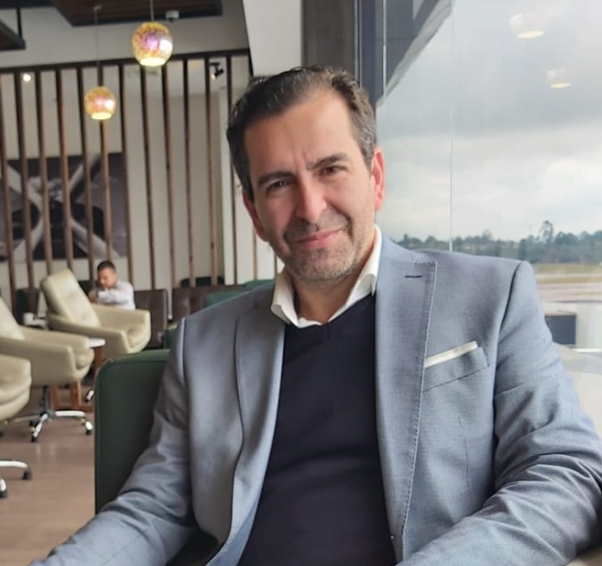Creating engineering business opportunities for a sustainable and inclusive Colombia
The Colombian peace agreement has created an opportunity for urban and rural communities to experience improved wellbeing and prosperity. In post-conflict areas, addressing inequality and poverty is crucial to promote equality in accessing basic services and rebuilding trust in affected communities. Fernando Colmenares-Quintero’s project works with the Wayuu indigenous community, La Paz (‘The Peace’), in La Guajira County in Colombia, as well as collaborators in the UK and Colombia to develop clean energy and water resources for the off-grid community, promoting the Academy’s strategic priorities of sustainability and equality.

Opportunities and challenges of peace
Since 2013, Fernando Colmenares-Quintero has led an interdisciplinary research group focused on Colombia’s urban and rural communities and the opportunities created by the peace settlement in the country. His work aims to enhance governance capacity and consider innovative solutions to challenges of justice, peace and climate change. With sponsorship from the UK Newton Fund through the Royal Academy of Engineering, he has initiated three projects. These projects involve characterising communities; identifying gaps; conducting feasibility studies in remote locations; and analysing renewable energy potential, environmental characteristics, and technical requirements for pilot projects. Stakeholders, including communities, policymakers, research institutions, industry, and academia, have actively participated in the outcome presentations and the co-creation of innovative solutions.
These have led to an initiative, supported by the DIA programme, that collects some of the key findings of other projects on energy, water, education, and sustainable development. These will then be used as inputs to achieve a range of goals, objectives and outcomes. Supporting the DIA programme’s objectives there will be a knowledge transfer from national and international experts to researchers and innovators in academia and industry in Colombia. Co-creation workshops and business roundtables between academia, companies, communities, governments, and international and national experts will generate alliances or exchange knowledge about specific topics focusing on sustainable solutions. This will enable the project to identify solutions that are applicable to the country and communities’ challenges and global challenges (Sustainable Development Goals – SDGs).
First fruits
“Our projects are framed to generate initiatives that have a positive impact on the different stakeholders, such as the creation of cooperatives that allow the solutions offered to be sustainable and inclusive, thus contributing to meet the UN Sustainable Development Goals (SDGs).”
An initial application involves the Wayuu indigenous community La Paz (‘The Peace’) in La Guajira County in Colombia. The main community activity is around the local school where about 450 children attend. The school is the only place where many children have access to clean water (only three times a day), but no access to water for washing clothes or bathing. They also face challenges of energy supply. The challenges they are facing have been a good validator for the initiative’s technology and teaching and learning strategies. The work done with the community consisted of gathering information about their water and energy challenges. This led to the project team identifying the key requirements for a course based on engineering solutions to support communities to address their SDG challenges. This course was validated by the Wayuu community and the industry partners and reflects the Academy’s broader strategic goals of a sustainable and inclusive society.
Local partners
Colombia has enormous inland/coastal freshwater resources, and it also labels itself as ‘50% Mar’ – its marine territorial waters (Pacific and Caribbean) have an equivalent area to that of its land territory. So, the project is working with Aquatera Ltd (Natalia Rojas) to look at aquatic renewable energy. A second collaborator, Empresas Publicas de Medellin (EPM) ESP Public Utility Company (Pedro Eusse) in Colombia, is providing further expertise to support the development of this project. This will include empowering the future engineering professionals who will shape new business and opportunities in Colombia’s energy and water sectors by improving the engineering curricula, teaching and skills to build strong local support for the development of appropriate renewable energy resources in the country.
Related content
DIA awardees
Distinguished International Associates (DIA) are international engineers working across all sectors. They work at the c…
FAQ
Information and answers to common queries about the Distinguished International Associates (DIA) Programme
